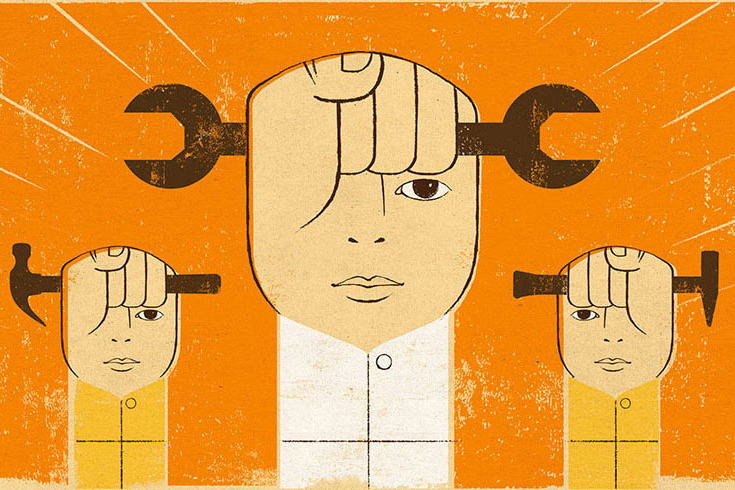
Are markets suitable mechanisms for addressing social issues?
I’m an economist. I believe in markets. And I believe in the power of the prices that are set in markets—signals of supply and demand. When you mess with markets and start trying to create planned economies or determine that this factory makes that much and this other factory makes this much or here’s the price at which people are going to buy this, regardless of what its cost of production is, you end up creating very serious, long-term economic problems.
All of that said, markets are very, very good at looking at cost of production and demand and getting people together, finding a way to sell goods or sell services, but they don’t do anything beyond that. And much of what we want to do in terms of development—human development as well as economic development—requires attention to additional issues.
The market, for instance, pays no attention to any group of people who have no money to bring into it. So marginalized, impoverished, small village populations have no involvement in the market. It’s not pro or con; they just aren’t there. No one’s paying attention to them.
So the question is, What other institutions in society, in addition to the market, do you need in order to deal with the social issues that you think are important and to which the market is relatively blind?
What can these other institutions do to make up for the shortcomings of the market?
It depends on the issue. Some issues are so important to the people or the community that you want to go a regulatory route. Something like worker safety, child employment, pollution of the water or the air around you—those are things that have huge health impacts. It’s not enough to just say, “Well, we can do voluntary compliance here,” and you can put a little stamp on it that says, “I treat my workers better.”
There are also situations in which, quite honestly, it isn’t in the best interest of the company, looking at purely the profit-maximization side, to invest in the community. For instance, it will cost me more to pay for healthcare for my workers. And as healthcare becomes more and more expensive, the value of doing good becomes more and more expensive. You get to a point where you say, “I do have responsibilities to my shareholders. My product won’t be bought if it becomes more expensive.”
So this is where setting floors through some form of regulation matters. If you have a world where every company has to pay minimum wage, that makes it much harder for sweatshops to operate. Because if my competitors are all out there paying $2.00 an hour and I want to pay my workers $4.50 an hour, I just can’t compete.
One of the arguments for many of these requirements and regulations about what type of healthcare or pension funds you can provide is that it levels the playing field. It doesn’t create a race to the bottom where the companies that are trying to do good get outcompeted in the market because the companies that aren’t trying to do good can always underprice them.
There are other issues where I’d say voluntary compliance, reputational issues, being on the list of the top 10 or being able to put on a seal of approval of this being a green product may well be the better way to go. Child care strikes me as one. I’m willing to have companies compete in the market, and if you want to advertise yourself as being family-friendly, that’s great. “We provide child care. They don’t. Come to us instead.” That’s very different from, again, something like worker safety.
The tricky part is that there are few global regulations.
This is, of course, one of the issues about multinational corporations; there are very few regulatory structures at an international level. The U.N. is remarkably weak at that and market power becomes quite important. Less important in a place like the United States; very important in poor countries in Africa, where there’s basically no government structures that can regulate, can stand up to the sort of market power that a very large corporation comes in with.
There is also often an inequality between the power of the private sector and the power of the civic institutions. This is where you need a both/and: You need a flourishing market and you need a healthy civic government sector. Only when those two are balanced do I think you get outcomes that aren’t problematic.
How do you create that balance?
Ideally what you want to create is a culture in which the expectation is that companies are responsible members of communities; the more you have private sector leadership that does that, the more this is in the atmosphere. Leadership does matter. The more you can instill in your future corporate leaders the idea that there is a responsibility to the community, the workers, the larger society—that has to have dividends at some point down the road.
But it can’t just be something you learn in school. It has to be something that is reinforced when you’re out in the business community. You can do things that help create that culture, but you also, at the end of the day, need regulations.
How do you regulate against the tremendous inequality we’ve been seeing?
Wider inequality and a much more mobile society may be much less objectionable than wide inequality in a stagnant society, where you’re stuck where you’re born in a more class-based society. So that means there have to be major investments in the things that make for opportunity: education, preschool all the way through higher education; healthcare; women’s rights—more important perhaps in the developing world than some other regions. It means citizen participation in civics, in voting. You need to think about, What are the opportunity-enhancing goods that tend to be public sector goods that you really want to provide at an even better level than ever before?
